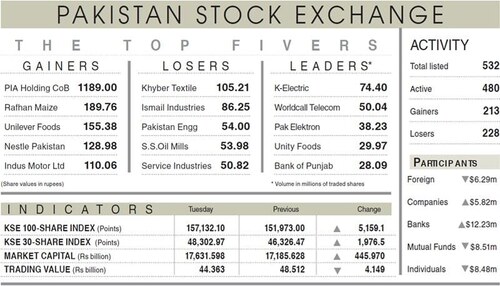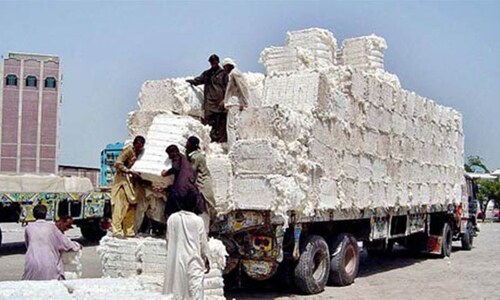PAKISTAN is one of the largest date producers in the world. Most of the country’s produce comes from Sindh, where date farming is spread over 75,000 acres.
More than 200 varieties of the fruit are grown in the province. Nearly 70 per cent of the province’s cultivation is done in Khairpur district, around 450 kilometres from Karachi, due to suitable climate.
The tremendous growth in date farming took place just after the Sukkur barrage was completed in the mid-1930s as the irrigated soil became more conducive for date palm.
Agriculture is central to Khairpur’s economy and date farming is the main source of livelihood for the residents.
Growers plant an average of 60 trees per acre, with each tree bearing 100 kilograms of dates. A large portion of the produce, around 450,000 tonnes, is transported to the markets of Khairpur and Sukkur.
At least 10 people are required to handle 100 date palms when the harvest is in full swing. In the off season, however, the task can be done by two people.
Therefore, an estimated 450,000 workers look after the farms in the season for up to at least a month compared to 90,000 during the off season.
Nearly 80-90pc of these dates are dried (called chhuhara) and then put in gunny bags and taken to the market. However, a large quantity of dried dates is exported to our neighbouring countries. The remaining soft dates are in demand in both local as well as international markets.
The export market of dates requires compliance of global food standards, hence it has different dynamics.
Pakistan exported dates worth $28.4 million during the five months to May, mostly to India, the United States, Britain and the European Union. Exports in 2016 stood at $99.6m.
Dry dates are the main produce in terms of volume and value. They are handled at the date markets of Khairpur and Sukkur by more than 200 traders, nearly two dozen active exporters and around 5,000 workers.
Soft dates are processed in local factories. There are 20 such factories, of which 10 are regularly involved in the export business.
Each factory employs around 200 people on an average, making the overall workforce to 4,000. Each worker takes home Rs300 to Rs500 daily. These workers perform various processing tasks.
However, a major part of the processing (grading, cleaning, pitting and dicing) also takes place in houses and cottages where three to four times more volume is handled than factory workers. This indirect workforce is estimated to comprise 12,000 to 15,000 people, almost all of whom are women.
The number of highway shops selling dates and its products is above 200, with daily average earnings of Rs1,000 to Rs2,000.
Therefore, date farming is benefiting thousands of households, with major beneficiaries being women who find decent opportunity to work in their area and enjoy financial empowerment by contributing a significant share in the household earnings.
Apart from Khairpur, the farming of dates has also spread to Sukkur, Ghotki and Naushahro Feroze districts of Sindh.
The growers have adopted the traditional methods in cultivating the plant and nursing it for at least two to three years.
The plantation was made by keeping a required distance between each palm so that it should enjoy good environment and space to flourish for bearing quality fruit.
Published in Dawn, The Business and Finance Weekly, August 28th, 2017
































